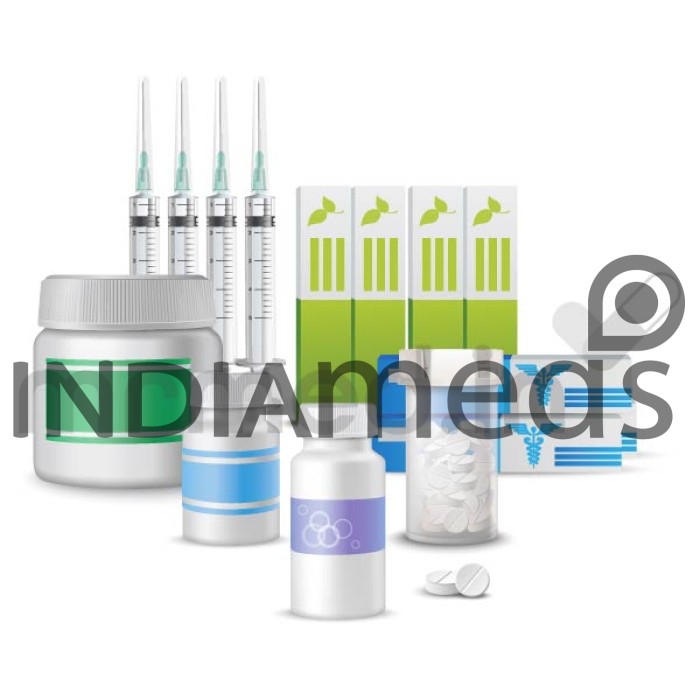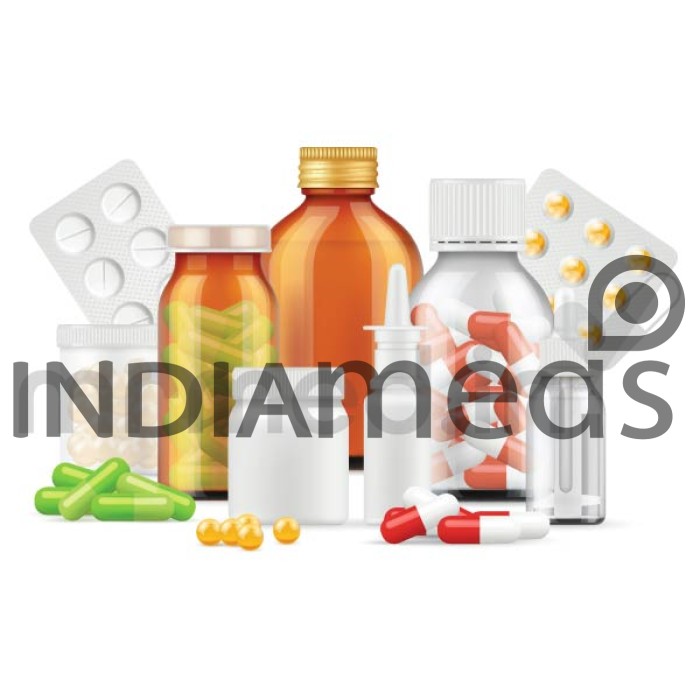Nilosure 150mg capsule is an antineoplastic drug with an active ingredient called Nilotinib. It belongs to the medication class known as tyrosine kinase inhibitors. This medicine is used to treat a type of leukemia called Philadelphia chromosome-positive chronic myeloid leukemia (Ph-positive CML), a blood cancer with abnormal production of WBC. In adult and pediatric patients, it is used in a patient who is newly diagnosed with Chronic Myeloid Leukemia (CML) and those facing side effects from previous treatment. Additionally, it is also used in patients with no longer respond to the previous treatment including Imatinib.
Do not take this medicine if you are allergic to Nilotinib or the other ingredients of this medicine. Notify your doctor if you have or had a history of heart conditions (heart attack, abnormal electric signal), chest pain, brain stroke, or claudication ( condition of blood flow in the leg). Inform your doctor if you have liver or pancreas disorder, or suffering from a lack of potassium or magnesium. You need to tell your doctor about all the medications especially if you take medicine to lower your blood cholesterol. Tell your doctor about your underlying condition especially inform about if you have or ever had a hepatitis B infection; this medicine can activate HPV again which can be fatal in some cases. Avoid consuming grapefruit or grapefruit juice. Inform your doctor if you are intolerant to some sugar, as this medicine contains lactose.
During the treatment, your doctor may conduct a regular blood test to monitor the liver and pancreas function, and the number of blood cells (WBC, RBC, platelets). Also to monitor the heart condition (prolongation of the QT interval), electrolytes in the body, and the level of sugar and fats to check how Nilosure 150mg is tolerated. Inform your doctor if you are pregnant or planning to get pregnant or breastfeeding. Use effective birth control during the treatment with this medicine.
Therapeutic Effects of Nilosure 150mg Capsule
Pregnancy
Nilosure 150mg is unsafe to use during pregnancy unless it is necessary. Report to your doctor if you are pregnant or think you may be pregnant, or planning for the pregnancy before starting the treatment; your doctor will tell you whether you can take this medicine during your pregnancy.
Breast Feeding
Taking Nilosure 150mg while breastfeeding may be unsafe because it may affect the child. Therefore, talk with your doctor to get more information.
Lungs
It is unknown if patients with lung conditions can consume Nilosure 150mg. So, before beginning the treatment, consult your doctor if you have any lung conditions. Consult your doctor if you experience symptoms like difficulty in breathing, wheezing or any other lung related condition while taking Nilosure 150mg.
Liver
Inform your physician if you have liver problems because Nilosure 150mg should be used cautiously with this condition. Before starting treatment, your physician conduct the liver function test.
Alcohol
It is unknown whether consuming alcohol while taking a Nilosure 150mg capsule is safe. Please speak with your physician.
Driving
While taking Nilosure 150mg, it is unsafe to drive or use machines because it may cause nausea, changes in vision, vomiting, etc. Talk to your doctor for more information.
Serious
- Sudden weight gain
- Swelling in hands, feet, ankles, or face
- Chest pain
- Blood pressure (high and low)
- Discoloration of tongue, lips, or skin (blue)
- Abnormal heart (irregular heartbeat)
- Hair loss
- Vision problem
- Stomach pain, vomiting of blood, blood in stools.
- Yellowing of the skin, eyes, and dark urine.
- High blood sugar levels.
- Sensitivity to light
Common:
- Nausea, vomiting, diarrhoea.
- Headache, muscle pain, stomach pain.
- Hair loss.
- Tiredness.
- Constipation.
- Slowing of growth in children.
- Pneumonia.
- Loss of appetite.
- Sleeplessness, depression, and anxiety.
- Stomach discomforts like bloating and flatulence after meals.
- musculoskeletal pain
Nilosure 150mg may cause liver function abnormalities, which may indicate liver damage. It is important to have regular blood tests to monitor your liver function while taking Nilosure 150mg. If you experience symptoms of liver damage, such as jaundice or abdominal pain, you should contact your doctor immediately.
Imatinib, in its selectivity and potency. Nilosure 150mg is more selective for the BCR-ABL protein that drives the growth of cancer cells, and it is more potent in inhibiting the activity of this protein. Nilosure 150mg has also been shown to be effective in patients who have developed resistance to Imatinib.
The potential long-term effects of Nilosure 150mg on the body include cardiovascular events, such as hypertension, arrhythmias, and heart failure, as well as liver dysfunction, pancreatic enzyme elevation, and fluid retention. These side effects are generally rare, but they can occur in some patients.
It is monitored through regular blood tests, electrocardiograms, and imaging studies. Blood tests can assess liver and kidney function, blood counts, and electrolyte levels. ECG can detect any changes in heart rhythm or function. Imaging studies, such as echocardiograms and chest X-rays, can evaluate the heart and lungs for any signs of damage or fluid accumulation.
Nilosure 150mg should not be taken by pregnant or breastfeeding women, or by people with certain medical conditions such as severe liver or kidney disease, a history of pancreatitis, or a prolonged QT interval.
Molecule name: Nilotinib | Therapeutic class: Antineoplastic drug |
Pharmacological class: Tyrosine Kinase inhibitors | Indications: Blood cancer (Philadelphia chromosome-positive chronic myeloid leukemia) in adults and pediatrics. |






-200x200.jpg)